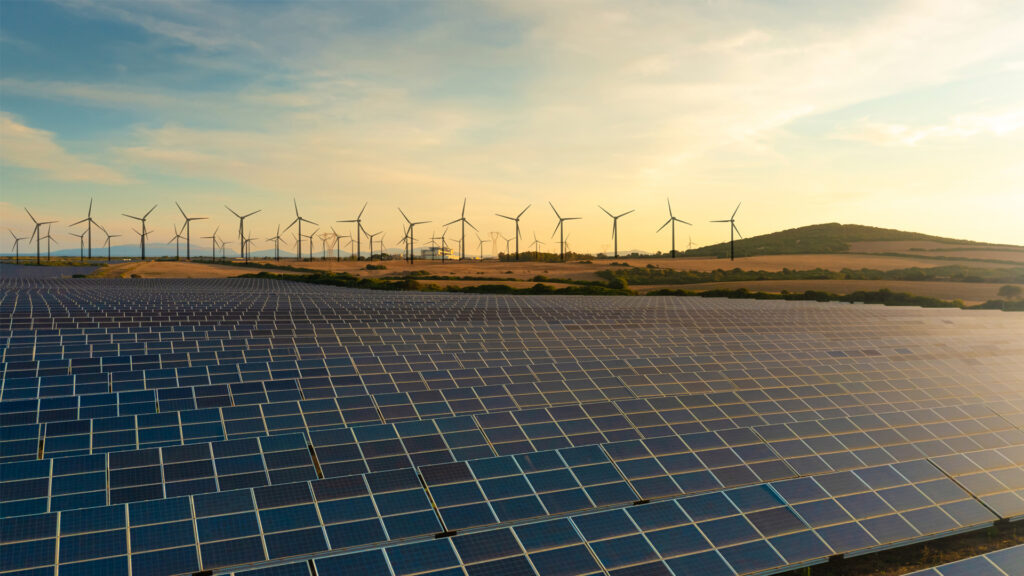By Thais Lopez Vogel, VoLo Foundation
As we review climate headlines every day, our thoughts turn to the challenges posed by climate change and the answers we so keenly need. The urgency is undeniable, but within it lies the opportunity to reframe our approach to sustainability while pursuing balanced economic growth.
Through cutting-edge technologies and innovative practices, we stand at the forefront of a future that can be both greener and more prosperous.
One of the most promising areas of innovation is carbon capture technology. According to the Massachusetts Institute of Technology, carbon capture and storage (CCS) refers to a collection of technologies that can combat climate change by reducing carbon dioxide (CO2) emissions. CCS projects are storing almost 45 million tons of CO2 every year, which is about the amount of CO2 emissions created by 10 million passenger cars.

The same source states that pure CO2 is used in greenhouses to grow plants. Some companies are working on turning CO2 into building materials such as cement and concrete, fuels, futuristic materials like carbon fibers and graphene, and even household products like baking soda, bleach, antifreeze, inks and paints – or to grow algae or bacteria. It can also be the basis for making biofuels, fertilizers or animal feed.
Solar and wind power are more affordable and efficient today, with innovations in energy storage and grid management enhancing their reliability. The U.S. Energy Information Administration forecasts that wind and solar energy will lead the growth in U.S. power generation for the next two years.
“As a result of new solar projects coming online this year, we forecast that U.S. solar power generation will grow 75% from 163 billion kilowatt-hours (kWh) in 2023 to 286 billion kWh in 2025. We expect that wind power generation will grow 11% from 430 billion kWh in 2023 to 476 billion kWh in 2025,” the agency reports.
Innovation is making waves in sustainable agriculture. The World Bank has significantly scaled up its engagement and investment in climate-smart agriculture as an integrated approach to managing landscapes — cropland, livestock, forests, fisheries – to address the interlinked challenges of food security and climate change. Increased productivity, enhanced resilience and reduced emissions are the three main goals.
But the success of these technologies hinges on our collective commitment to support them. Governments must lead by enacting more policies promoting investment in green technologies. This includes subsidies for renewable energy projects, tax incentives for companies adopting sustainable practices and funding for research and development in climate innovations.
International cooperation and agreements are also crucial in setting global standards and ensuring that progress is made on a worldwide scale.

Businesses have a vital role to play. Corporate investment in sustainability benefits the planet, enhances brand reputation and drives long-term profitability. Companies can adopt renewable energy sources, invest in carbon capture projects and implement sustainable agricultural practices within their supply chains. By doing so, they also inspire consumer confidence and loyalty.
As consumers, we have the power to drive change through our choices. By opting for renewable energy options where available, supporting sustainable brands and reducing our carbon footprints through lifestyle changes, we can collectively make a significant impact.
Advocacy and education are also key; by staying informed and spreading awareness, we can influence broader collective shifts toward sustainability.
Let’s embrace the potential of cutting-edge technologies and innovative practices. By investing in solutions, supporting policies and committing to sustainable living, we can turn the tide of climate change.
The future of our planet depends on the actions we take today. Let us act to ensure a healthier and prosperous world for generations to come.
Thais Lopez Vogel is the cofounder and trustee of VoLo Foundation, a private family organization that exists to accelerate change and global impact by supporting science-based climate solutions, enhancing education and improving health. This piece was originally published at https://volofoundation.org/news/climate-action-sparks-hope-on-world-environment-day/.
If you are interested in submitting an opinion piece to The Invading Sea, email Editor Nathan Crabbe at ncrabbe@fau.edu. Sign up for The Invading Sea newsletter by visiting here.



